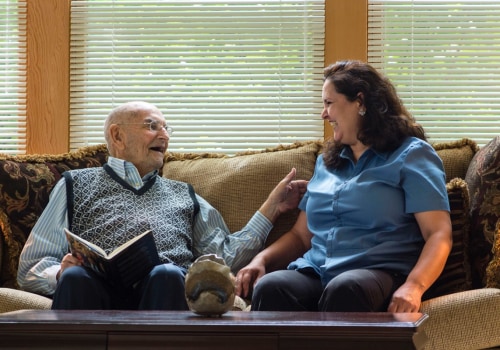You will pay for most of the medical expenses incurred while living in an assisted living facility (ALF) in Rhode Island. Every state has a state Medicaid plan, which covers the cost of nursing home care for the elderly and disabled, as well as limited home care. Most states also offer exemptions from home and community-based services (HCBS), which provide in-home care, community support and a variety of services, to avoid the unnecessary placement of elderly or disabled people in nursing homes. However, Rhode Island is unique in that its state plan and Medicaid exemptions are merged under what is called the Rhode Island Global Compact on Consumer Choices exemption (also called the Rhode Island Comprehensive Demonstration).
This global exemption offers a large number of benefits and services, including personal care, housewife services, meal delivery, home modifications, adult day care, temporary care and skilled nursing. This exemption allows for self-management, meaning that eligible Rhode Island residents can choose the caregiver of their choice, including adult children.
Medicaid
doesn't cover the ALR, or additional room and board services. The person who chooses this Medicaid option (LTSS) must pay with other resources, housing charges and any services not covered by Medicaid (such as cable and Internet access) that they choose to receive from the ALR.To ensure that people who apply for housing can afford these costs, the amount in dollars that a certified ALR can charge for a home each month is limited. Rhode Island also has a state's Supplemental Payment Program (SSP) that provides financial assistance to low-income Medicaid beneficiaries who live in ALR. Depending on the extent of the individual's needs, access to some of the Medicaid-certified assisted living homes may not be available. Rhode Island's Medicaid program is one of few in the U.
S. which directly covers some of the costs of assisted living for eligible residents. Under the federal authority of the Older Americans Act, the Ombudsman's role is to oversee the quality of life and health care services of people living in long-term care facilities, including assisted living facilities. If you're considering assisted living options in Rhode Island, it's important to carefully research potential facilities and determine what services are important to you.
To help Rhode Island residents better understand these issues, this webpage will cover the average costs of assisted living, home care and adult day care across the state. If you are already an SSI beneficiary, apply for the SSI Enhanced Assisted Living Program by calling (40) 462-4444 or download the required forms online. If you have limited assets, low incomes, and meet state criteria for assisted living services, assisted living funded by Medicaid may be an option. There is no minimum staff-to-resident ratio in Rhode Island assisted living centers, but the ratio should be considered “sufficient” to provide the level of care needed to maintain residents' well-being.
Assisted living communities in Rhode Island can offer apartment or bedroom residences with single or double occupancy. Since COVID-19 is a rapidly evolving crisis, be sure to contact your assisted living center or local Agency on Aging for the most up-to-date information. Residents also have the right to hire a third party to provide them with care services that are not included in the scope of care of an assisted living facility, provided that the third party complies with the rules and regulations that govern the ALFs. Except in dementia care units, admission and residency in an assisted living community in Rhode Island depend on physical mobility, the ability to make decisions, and the ability to take appropriate action in emergency situations.
By contacting or visiting a Social Security office, you can better understand your social security benefits or those of your loved one and what types of resources may be available to help you pay for assisted living expenses. People can apply for Medicaid long-term Medicaid services and supports online or by completing and submitting the cover of the request for assistance and the request for assistance. Case management agencies hired by the Office of Healthy Aging help people complete a Medicaid LTSS application, assess the scope of their needs, and help them develop a person-centered care plan. In the case of M1 level ALFs, more comprehensive assisted living arrangements, licensed employees such as professional nurses or practical nurses can administer oral or topical medications and monitor health indicators.








